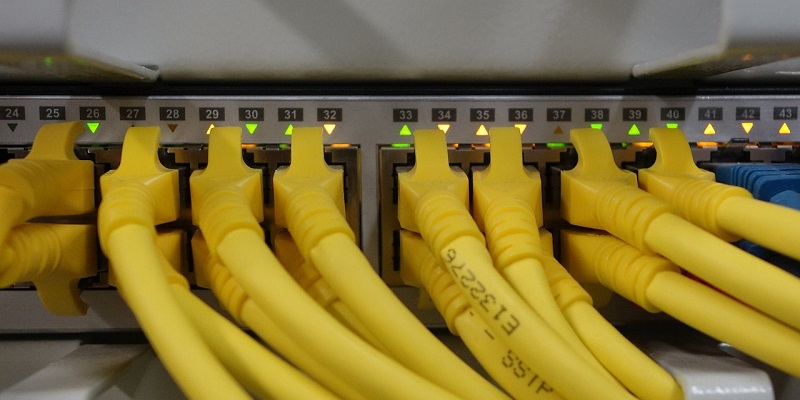In the ever-evolving world of technology, South Korea’s SK Telecom has taken a leap forward by developing a groundbreaking 400 gigabit per second (Gbps) high-capacity wired network. This new network is set to revolutionize the backbone of the country’s 5G mobile communication system, providing a fourfold increase in speed compared to the existing network. As the world eagerly awaits the commercialization of 6G technology, SK Telecom’s innovation holds significant importance in paving the way for the future of advanced communication networks.
SK Telecom’s 400 Gbps Wired Network
The newly developed 400 Gbps wired network sets a new benchmark in terms of speed and efficiency. With four times the capacity of the current network, it is undoubtedly a game-changer for SK Telecom. By harnessing this high-capacity network, SK Telecom aims to meet the growing demand for large-capacity communication data traffic driven by emerging technologies such as artificial intelligence (AI) and cloud computing.
Benefits of the New Network
The advantages of this high-capacity wired network are boundless. One of the key benefits is improved network management efficiency. By reducing the number of wired networks connecting the backbone, SK Telecom can enhance response times in the event of a breakdown or failure. This not only ensures uninterrupted services but also enables quicker resolution to any technical issues that may arise.
Adoption and Expansion Plans
SK Telecom’s decision to adopt this high-capacity wired network ahead of the expansion of communication networks is a strategic move. By staying ahead of the curve, SK Telecom secures its position as a leader in the development of advanced communication networks in South Korea. Initially, the technology was implemented in the backbone section of the Seongsu and Boramae neighborhoods in Seoul, showcasing its effectiveness. The next phase involves expanding the network to backbones across the country, solidifying its presence and impact nationwide.
Environmental Impact
Beyond speed and efficiency, SK Telecom’s 400 Gbps network also contributes to environmental sustainability. By drastically reducing energy consumption and lessening CO2 emissions, it exemplifies the company’s commitment to environmental and social governance (ESG) management. Furthermore, the need for physical equipment space is reduced, further minimizing the ecological footprint of the network.
Network Performance Monitoring
As the backbone capacity of the network grows, SK Telecom recognizes the importance of continuous monitoring of network performance. To achieve this, the company plans to utilize AI technology to assess the performance of the wired network. This AI-powered surveillance automation function will enable real-time monitoring and facilitate proactive identification and resolution of potential issues, ensuring optimal network performance around the clock.
Supporting Growing Demand
The 400 Gbps high-capacity wired network is designed to support the ever-increasing demand for data-driven services and applications. With the rise of AI, cloud computing, and other data-intensive technologies, SK Telecom’s network provides the necessary infrastructure to handle the surge in large-capacity communication data traffic. This ensures uninterrupted connectivity and access to cutting-edge services for millions of users.
Future Readiness
SK Telecom’s development of this high-capacity wired network is a significant step towards preparing for the future advancement of 5G and the eventual commercialization of 6G technology. By embracing this pioneering technology, SK Telecom has positioned itself as a frontrunner in the race to establish advanced communication networks in South Korea. This not only strengthens the country’s technological and economic prowess but also sets the stage for further innovation and the realization of futuristic applications.
SK Telecom’s development of a 400 Gbps high-capacity wired network marks a turning point in the world of advanced communication networks. With its unmatched speed, improved network management efficiency, and dedication to environmental sustainability, this network is a testament to SK Telecom’s commitment to staying at the forefront of technological innovation. As 5G unfolds and anticipation for 6G builds, SK Telecom is paving the way for a connected future where seamless communication and advanced services have no bounds.

